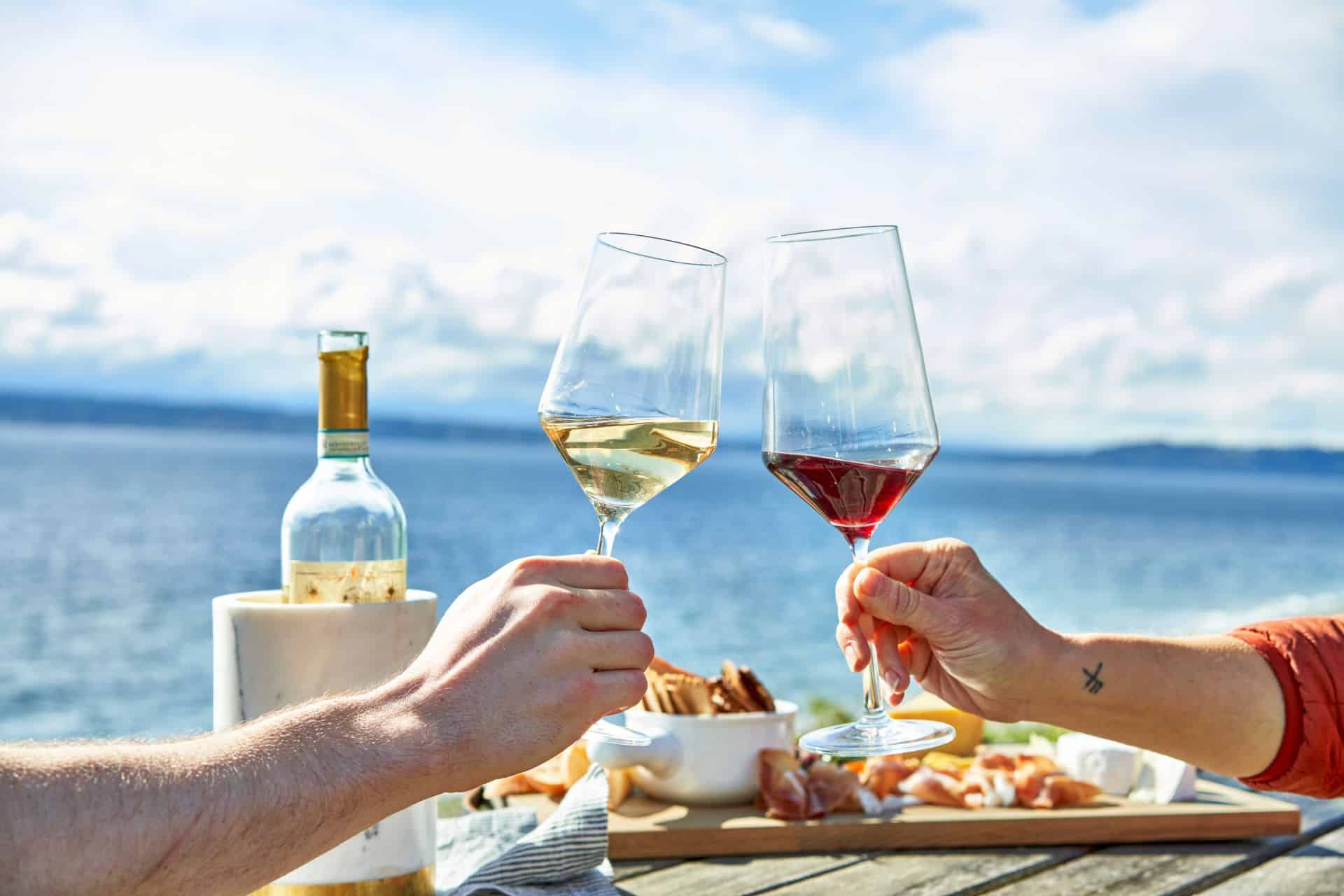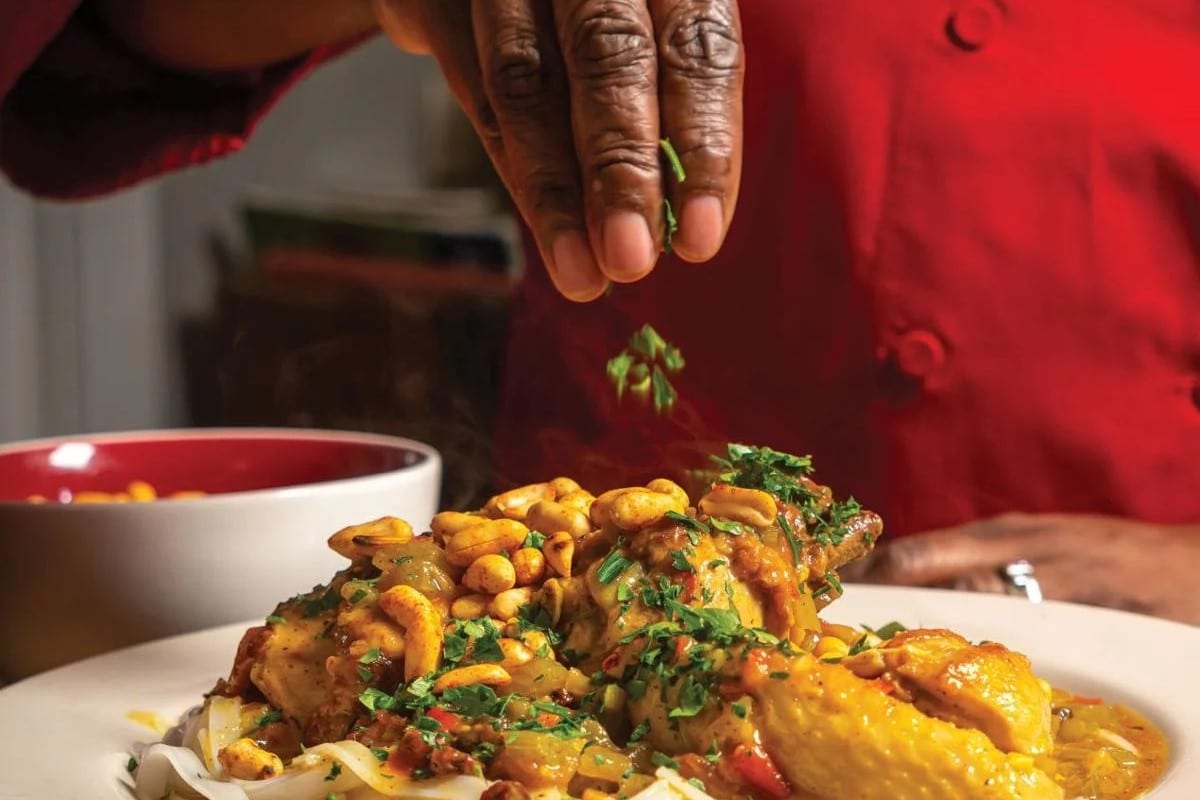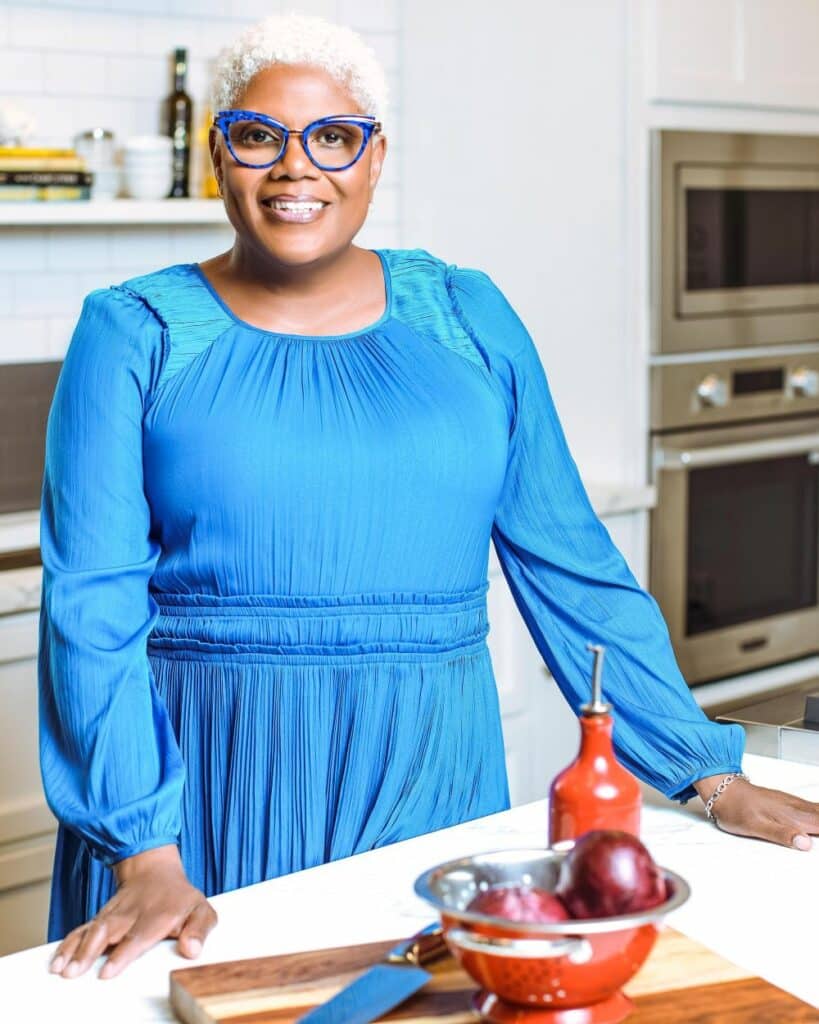Decisions, decisions.


Chef Deborah VanTrece is a steadfast pillar in the burgeoning Atlanta food scene.
Her restaurant, Twisted Soul Cookhouse & Pours, opened in 2016 and elevated Southern soul food to new heights, competing for foodies’ affections alongside longtime Atlanta staples, like Miller-Union, Kimball House and King + Duke.
And she’s even caught the attention of the James Beard Foundation, earning a spot as a 2023 semifinalist for the “Best Chef: Southeast” award.
Her globally inspired Southern eats seek to bring diners together—enjoying oxtails glazed with hoisin sauce or salmon rolls served with a paprika miso mirin aioli—under one ideal: a shared love of good food.
In honor of Black History Month, we asked Chef Deborah to sit down with us and discuss her journey toward becoming one of Atlanta’s star chefs, her pursuit of global cuisine and why she’s excited to share her Southern-inspired cooking with our community of chefs and at-home cooks.
Check it out below.

You can cook along with Chef Deborah in the Global & Modern Soul Food online cooking class on Friday, February 24 at 5 PM EST. She’ll be teaching us how to make one of her favorite recipes from the Twisted Soul Cookbook: Country Captain Chicken Stew.
Sign Up for the Class
***
So, we all know you as “Chef Deborah VanTrece, star of the Atlanta culinary scene, restaurateur and cookbook author.” But I’m curious to know how you got to this point. What were you doing before you were whipping up magic in the kitchen?
I was talking about making magic in the kitchen!
I’ve always had a love for food and what propelled that even further was my job as a flight attendant. I was flying internationally and my ex-husband at the time played basketball outside of the country, so I got to experience cuisines from different cultures on a different level than just going to the “recommended hot spot” or a restaurant. The hot spots were in people’s homes.
All of that was a major influence on me wanting to pursue this professionally. Prior to that, you know, I just thought of cooking as a hobby, not something you got paid for. And I also had this impression that everybody cooked because, frankly, pretty much everybody I knew was a great cook.
Ah, gotcha. So, you weren’t really aware, at the time, that you could form a career out of it. What was that moment where you first looked around and went, “okay, this is really taking off.”
I still have those moments, those moments haven’t stopped.
I would say, though, my first restaurant was a small little restaurant in East Atlanta Village.
And I’d been open about two months and—this place was tiny by the way—it only sat like 28 people and had a little lounge area. And I got a write-up from a food critic, and I never thought that what I was doing or something that small would get the attention of a food critic. I thought that was for big chefs with big money who did not look like me.
So that, you know, was the first kind of eye-opening experience and the first time I thought, “wow, I didn’t expect this.”
In past interviews, you know there’s always been a mention about how you “check all the boxes” when it comes to diversity in the culinary world. I’m just curious—what kind of obstacles did you face?
Well, you know, every barrier was there. All those boxes I checked? I checked them because there were barriers for all of those different boxes.
As an African American, of course. But the biggest one was being a woman.
I’ll say that over and over again, the biggest [barrier] was being a woman who wanted to work in a professional kitchen and coming from being a flight attendant—an industry that is predominantly dominated by women—to a predominantly male industry was an eye-opener.
A lot of the things that happened, they happened quickly, and I had no idea that this was part of what I signed up for.
So yeah, being a woman, the color of my skin. And then I messed around and decided, “well, I think I’m a lesbian now so let’s just add that onto the plate.”
At that point, you know, I had a pretty decent career, but it was the fear of well, what if people find out this about you? Are they still going to look at your talent or are they going to only look at your preference? What’s going to happen?
Those are kind of the big ones, but I mean, we could even talk about how I was older than everyone. I was in my thirties, going to culinary school with 17 year olds and my priorities were different.
I know that mentorship is very important to you as you’ve continued to grow. How have you used those experiences to be that mentor towards these younger generations of chefs?
I think just my mere existence and being honest and open and truthful is a big part of it. It’s not necessarily that I’m the first to have done the things that I’ve done, but maybe I’m the only one that someone has heard about. Or the first one who spoke truth that someone else related to.
I’ve gotten to a point where I’m mature enough and confident enough in what I bring to the table, and I don’t remain quiet about the fact that the things that are wrong with the industry are the same obstacles I’ve faced along the way.
And I think just being honest, lending an ear and being a voice for those who are underrepresented is just something that I will continue to do.
Now, the cookbook: Twisted Soul Cookbook. Tell me about the inspiration for that and how you found your calling through “globally minded Southern dishes.”
So the cookbook was basically like the brainchild, or, I guess the blueprint of lightbulb moments.
When I did begin to travel outside Kansas City, Missouri, I got the opportunity to experience so many different cultures and find so many similarities to my own [culture]. And that cookbook is kind of an expression of all of those lightbulb moments.
It’s me realizing that so many people and so many other countries that speak different languages were cooking the same food that I grew up with and the same food that the country I lived in kind of turned their nose up at. But in another cuisine it’s something that is, you know, looked at as a gourmet meal or something that was really special.
With me writing the cookbook, I use food as the equalizer of different cultures—we all eat, we all drink and we all enjoy it, for the most part. And that’s all across the globe. So that, paired with similarities in recipes, is the inspiration behind the cookbook.
It’s a belly full of deliciousness, for darn sure. And it’s got some cool history behind it.
Stewing a chicken was a way of cooking an “old bird,” as some would call it, and getting it tender. So stewing chicken is something that slaves have been doing through history.
The cool thing about this recipe is that it’s considered a fusion of Indian and Southern cooking. And you see different types of stories of how this dish came about, but most people agree that it came through Southern ports and it was rumored to have been created by an Indian ship captain.
He brought spices in through the spice trade and that is kind of how this dish came into fruition. Now, of course, I’ve added all of my additional little nuances to it. It’s typically served over rice, but the noodles is kind of me bringing the Thai influence to it. With the peanuts I got a little bit of Georgia in it, definitely, and also that Indian and Thai cuisine as well.
It represents quite a few cultures, it really does—and that’s what I like to do, is mix them all up together.
***
This month, to encourage the education and growth of future generations of chefs like Chef Deborah, we’ve partnered with the NAACP in support of its ACT-SO Culinary Arts program.
100% of the proceeds from Chef Deborah’s Global & Modern Soul Food online cooking class will go towards benefitting the NAACP’s ACT-SO Culinary Program and its work in helping the next generation of chefs achieve their dreams. If you can’t attend the class but would still like to support the ACT-SO Culinary Program, you can make a donation here.
Through its ACT-SO Culinary program, the NAACP has helped create career pathways for high school juniors and seniors entering the culinary and hospitality industries, providing students with the necessary tools and skills to thrive in the front and back of house. You can read more about the NAACP and the work it is doing to ensure that Black lives are a priority in all spaces here.
To learn more about Chef Deborah and her globally inspired Southern fare, check out her website.
You can cook along with Chef Deborah in the Global & Modern Soul Food online cooking class on Friday, February 24 at 5 PM EST. She’ll be teaching us how to make one of her favorite recipes from the Twisted Soul Cookbook: Country Captain Chicken Stew.
Sign Up for the Class
JOIN THE CONVERSATION